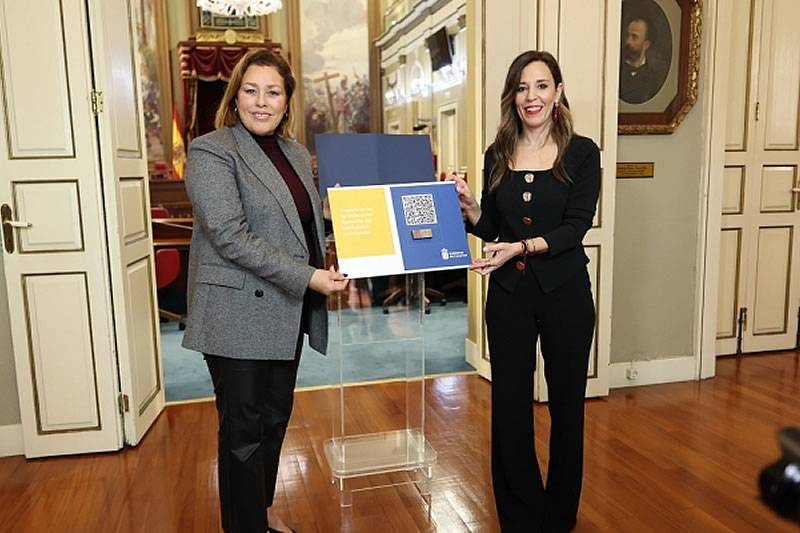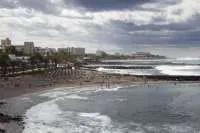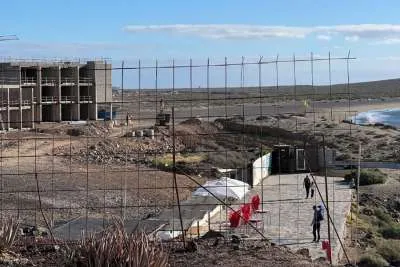New holiday let rental law for the Canary Islands is presented to parliament
- 07-02-2025
- National
- Canarian Weekly
- Photo Credit: Gobierno de Canarias
The Canary Islands Government has officially launched the legislative process for its Sustainable Regulation of Tourist Housing Law, aiming to curb property speculation and prevent the rise of so-called “fake hotels.”
The bill, presented yesterday, Thursday 6th February, by Jessica de León, the Minister of Tourism, to Astrid Pérez, President of the Canary Islands Parliament, is set to undergo parliamentary debate before a final vote.
The proposed legislation aims to restore balance in the housing market by implementing strict controls on the expansion of holiday rentals. Once enacted, the new law will:
- Ban newly built properties from being used for tourist rentals for ten years after construction.
- Prohibit entire residential buildings from being converted into holiday lets.
These measures are expected to halt property speculation, where real estate prices are set based on potential short-term rental income, and effectively end the practice of turning residential buildings into pseudo-hotels by issuance of VV licences.
Crackdown on Tourist Property Speculation
Article 5, Section 1 of the new law establishes rules for properties classified as residential, stating:
“Residential properties intended for tourist stays must be at least ten years old, as verified through a declaration of new construction, a first occupancy licence, a municipal certificate, a cadastral certification, or any other legally valid documentation.”
The government argues that this rule is designed to prevent developers from designing and selling properties explicitly for tourist rental use from the outset, which has driven up property prices and distorted the housing market.
In recent years, many developers have marketed entire projects to investors looking for the high returns offered by short-term rentals, further inflating property prices and reducing the availability of homes for local residents.
End of ‘Fake Hotels’ in Residential Areas
Article 5, Section 2 also sets strict limits on tourist rentals within residential complexes and buildings. Specifically, it states that:
- No more than ten tourist rental beds will be allowed in a single residential building.
- There must be a 1:10 ratio between tourist and residential units.
- There will be restrictions on the total square metres allocated to holiday lets.
These new rules introduce a double barrier to the spread of unregulated tourist accommodations disguised as residential buildings. The restrictions will apply both to newly built properties and older buildings that have already surpassed the ten-year requirement.
What’s Next?
The Canary Islands Parliament will now debate potential amendments before voting on the final version of the law. The government is pushing for its implementation by the end of 2025, arguing that the surge in holiday rentals has disrupted the property market, reduced the availability of long-term rentals for locals, and contributed to rising living costs.
With this legislation, the Canary Islands are taking a firm stance against uncontrolled holiday rentals, ensuring that tourism growth does not come at the expense of residents' access to affordable housing.



























































